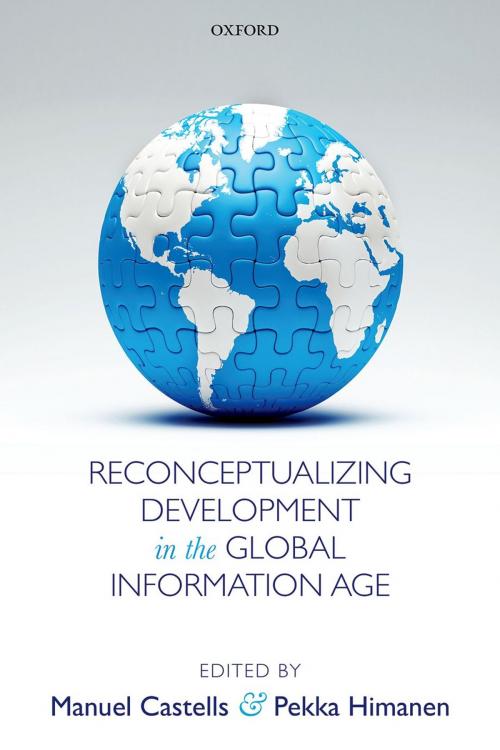Reconceptualizing Development in the Global Information Age
Business & Finance, Management & Leadership, Management, Nonfiction, Reference & Language, Reference| Author: | ISBN: | 9780191028274 | |
| Publisher: | OUP Oxford | Publication: | August 28, 2014 |
| Imprint: | OUP Oxford | Language: | English |
| Author: | |
| ISBN: | 9780191028274 |
| Publisher: | OUP Oxford |
| Publication: | August 28, 2014 |
| Imprint: | OUP Oxford |
| Language: | English |
The conditions in which 'development'—the process by which people, individually and collectively, enhance their capacities to improve their lives according to their values and interests—operates have significantly changed in the global information age, a period characterized by the technological revolution in information and communication, the rise of the networking form of social organization, and the global interdependence of economies and societies. This volume aims to redefine the means and goals of development in this new context: first, by characterizing the specific mode of development, informational development, that the authors consider to be the driver of the creation of material wealth in the twenty-first century; secondly, by reconceptualizing human development as the fulfilment of human wellbeing in the multidimensionality of the human experience, ultimately affirming dignity as the supreme value of development; thirdly, by examining the relationship between informational development and human development. After first setting out its analytical framework, the book brings together a diverse set of empirically-rich case studies to illustrate this investigation from across the globe—Silicon Valley, Costa Rica, Chile, South Africa, Finland, the European Union, and China—and concludes by attempting to reconceptualize development. It raises important questions and provides observations, including examining the concept of 'dignity as development', to contribute to a policy debate that should provide specific answers linked to the conditions of each society, and be enacted by democratic institutions in a concerted global effort to save humankind while there is still time.
The conditions in which 'development'—the process by which people, individually and collectively, enhance their capacities to improve their lives according to their values and interests—operates have significantly changed in the global information age, a period characterized by the technological revolution in information and communication, the rise of the networking form of social organization, and the global interdependence of economies and societies. This volume aims to redefine the means and goals of development in this new context: first, by characterizing the specific mode of development, informational development, that the authors consider to be the driver of the creation of material wealth in the twenty-first century; secondly, by reconceptualizing human development as the fulfilment of human wellbeing in the multidimensionality of the human experience, ultimately affirming dignity as the supreme value of development; thirdly, by examining the relationship between informational development and human development. After first setting out its analytical framework, the book brings together a diverse set of empirically-rich case studies to illustrate this investigation from across the globe—Silicon Valley, Costa Rica, Chile, South Africa, Finland, the European Union, and China—and concludes by attempting to reconceptualize development. It raises important questions and provides observations, including examining the concept of 'dignity as development', to contribute to a policy debate that should provide specific answers linked to the conditions of each society, and be enacted by democratic institutions in a concerted global effort to save humankind while there is still time.















